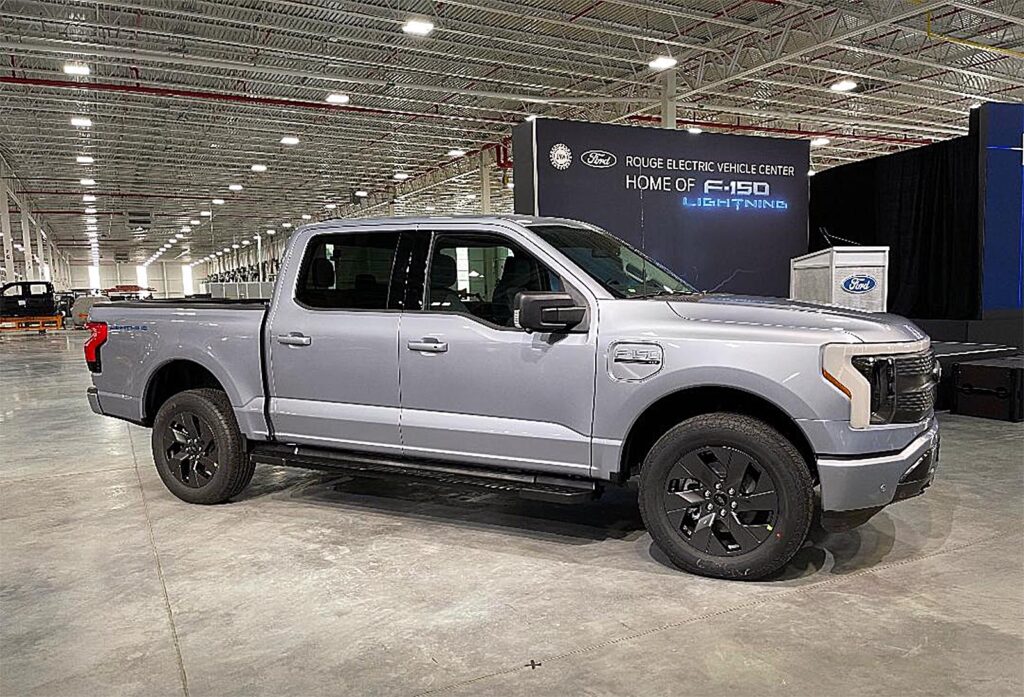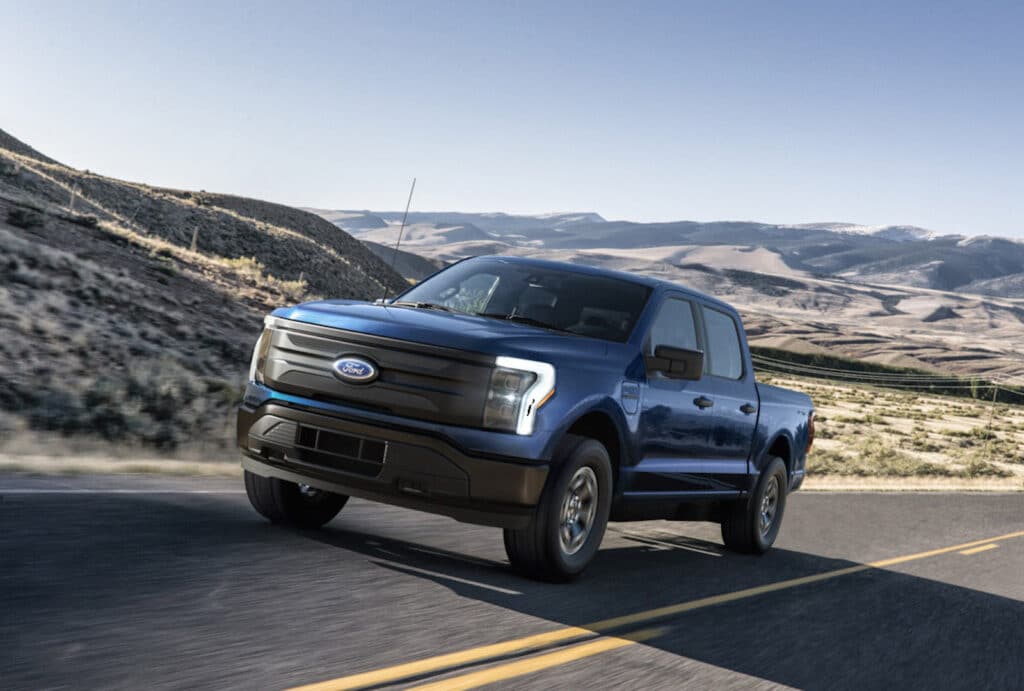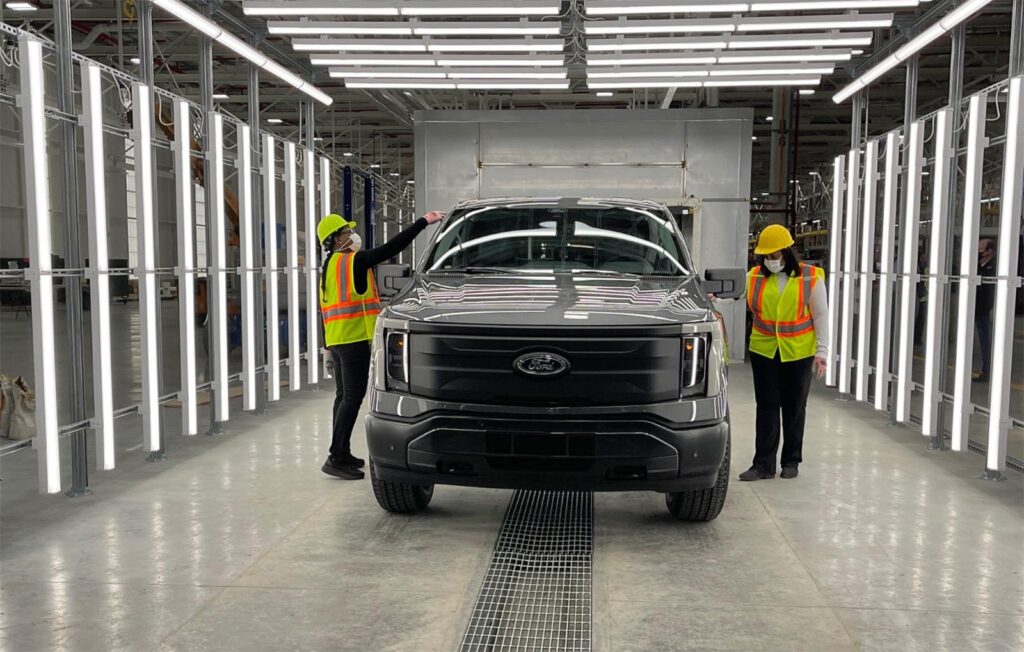Back in Production, Ford Again Raises Pricing for F-150 Lightning.
Defying predictions of an imminent price war in the EV market, Ford Motor Co. again raised the price of its F-150 Lightning pickup.

The move comes as the Detroit automaker begins ramping production back up after having to idle the Lightning plant due to a battery-cell manufacturing problem linked to at least one fire at a factory holding lot.
The latest in a series of increases sees the base version of the electric pickup jump to more than $60,000 after factoring in delivery fees. That’s roughly 50% more than what Ford originally targeted before Lightning officially went on sale about a year ago.
Pricing is prickly
Automakers have been struggling to find the sweet spot when it comes to pricing their battery-electric vehicles. Currently, EVs are averaging around $65,000, according to data from groups like J.D. Power, Edmunds and Kelley Blue Book. That’s about $17,000 more than the average transaction price for vehicles on the whole, though the figures are a bit misleading. Manufacturers have tended to focus on high-line and luxury segments of the market sensing more of a willingness by those customers to absorb an EV premium.
Automotive prices, in general, have gone up sharply since the beginning of the pandemic, but the cost of EVs, in particular, has had to reflect a sharp surge in the price of raw materials. At one point last year, lithium, a key battery ingredient, was trading at about seven times its pre-COVID price.

In announcing the latest price hike for the F-150 Lightning, Ford said it was “in response to current material costs, market factors and supply chain constraints.”
Those have contributed to a steadily worsening financial picture for Ford Model e, the side of the company now focused on battery-electric vehicles. The unit went $2.1 billion into the red in 2022 and is expected to rack up a $3 billion deficit this year, Ford CEO Jim Farley told investors and analysts earlier this month.
Cutting the flow of red
To help reduce its losses, Ford will now raise the MSRP for the commercial version of the electric truck, the F-150 Lightning Pro, to $59,974 from $55,974, the automaker announced. The Pro originally debuted at $39,995 — those numbers not including delivery fees.
The mid-range retail model, the Lightning Lariat Standard, gets a $1,500 bump, going from $74,474 to $75,974. And the top-line Lightning Platinum model begins at $98,974, up from $96,874.
Ford appears to be betting that buyers will accept the price hikes — or, at the least, that it will retain more than enough buyers to cover the production capacity at the electric vehicle facility it runs in the Detroit suburb of Dearborn.

The plant originally was tooled to assemble just 25,000 Lightnings annually. The facility currently is being upgraded to reach a yearly capacity of 150,000, a run rate the company said it expects to achieve by the end of 2023. Even then, officials have indicated they don’t expect to catch up to just the original bank of orders until sometime in 2024.
Ramping up
Ford also announced this past month plans to boost production capacity for its other retail battery-electric vehicle, the Mustang Mach-E. But that product line also saw a sizable price cut. That move appeared to reflect the need to maintain a competitive price point with Tesla. The Texas-based manufacturers began the year with price cuts on its key product lines, including the Model Y, a direct competitor to the Mach-E.
Some analysts expected Ford to trim the price of the Lightning, as well. In a study released this week, J.D. Power warned of an imminent price war within the EV segment.
Whether Ford will hold, or even continue raising, the price of the Lightning is uncertain. It has benefited from a modest decline in raw material prices this year. And it will be facing a growing list of competitors in the all-electric pickup segment.
By early in 2024, there are expected to be new entries from Chevrolet, Dodge and GMC. And Tesla has promised to finally get its repeatedly delayed Cybertruck into production by late 2023.
Auto Lovers Land
Comments
Post a Comment